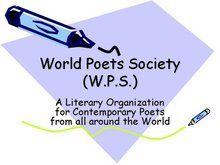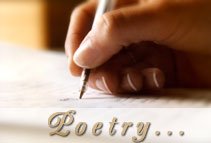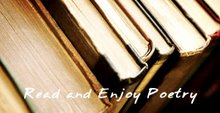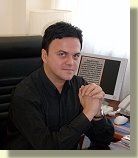Biografia:
André Cruchaga, Nació en Chalatenango, El Salvador, 1957. Tiene una licenciatura en Ciencias de la Educación. Además de profesor de humanidades., ha desempeñado la función de docente en Educación Básica y Superior. Parte de su obra poética ha sido traducida al francés por Jean Dif, Danièlle Trottier; esta última, el libro antológico: “El fuego atrás de la ventana” (Le feu derrière la fenêtre) y Viajar de la ceniza. La poeta María Eugenia Lizeaga, por su parte, ha traducido el libro “Oscuridad sin fecha” al Idioma vasco (Euskara); y poemas sueltos, Michel Krott, al holandés.
Reconocimientos: Primer Premio Juegos Florales de Zacatecoluca ( La Paz, 1985), Primera Mención de Honor (Juegos Florales de San Miguel, San Miguel, 1988), Primera Mención de Honor (Juegos Florales de San Vicente, San Vicente, 2001), Primer Premio Juegos Florales de Chalatenango (Chalatenango, 2002), Primer Premio Juegos Florales de Ahuachapán (Ahuachapán, 2005), Finalista: Primer Concurso Internacional de Poesía "Paseo en Verso" ( Editorial Pasos en la Azotea, Querétaro, México, 2004/2005).
Publicaciones: Alegoría de la palabra (1992), Fantasía del agua (1992), Fuego de la intimidad (1993), Espejo del invierno ( 1993), Memoria de Marylhurts (1993), Visión de la muerte (1994), Antigua soledad (1994), Insomnio divagante (1991), Viento (1995), Césped sobre el fuego (1995), Fugitiva luz de los espejos (1995), Fantasía del bosque (1996), Enigma del tiempo (1996), Roja vigilia (1997), Querencia del follaje (1998), Rumor de pájaros (2002), Oscuridad sin fecha (2006), Pie en tierra (2007).
1. Laberinto de los espejos
Ocúltate del siniestro pájaro
Que te asedia a las horas más inesperadas…
Enrique Gómez Correa
El aire turba los pensamientos ante el sonido de las piedras,
Mientras lianas de fantasmas nos asisten
Con abrazos de ciegos brebajes.
Las epifanías transcurren oscuramente
Donde el musgo germina sus andrajos.
Entre tanta imagen de la vida:
Imágenes esféricas, atribuladas,
Sombras a la deriva aleteando en la esperanza,
La vida le debe a la vigilia
Y a las leyes del mundo.
En la zozobra salta la altitud de la fe;
Los fieles dibujan un amor invicto,
Pero la carne tañe otros destinos otra luz que se apaga.
Sacrificial es este fuego de todos los días:
Agónico estertor de la demencia humana,
Frágil sueño entre la ceniza de la noche,
Dios ahí como luz errante,
Envuelto en silencio, sobreviviente también,
Del clamor de la vida, viendo los golpes
Desde la transparencia de su omnipotencia.
Estamos expuestos a la congoja,
Sombra del sueño;
Nada es la luz en la doliente herida,
Si no es para desvelarla,
Fragua de un himno desgarrado,
Luto de obstinado terror.
Hay salmos y proverbios para enaltecer la noche:
Huracanes de buitres, ebrias líneas de papel
Profanando las ventanas
Como cadáver oculto en la caverna
De las manos.
Debajo de la vida, la muerte renace cada día,
Con su borrosa porcelana de quebrados vientos:
Sepia es el zarpazo, horrible el tizne
De los tabancos, la presencia desnuda
De las aceras.
Debajo de la piel nombres destejidos,
Demasiada ceniza en las barbas,
Las banderas y el nombre de los santos desteñidos.
Dentro de los poros, los pájaros,
La herida genésica debatiendo
Entre antiguos sonidos, negros soles
Sobre el sonido de glaciales estupefactos.
Aquí la muerte presente en los nombres,
Aquí la muerte entre los dedos de la madera:
Olvida nombres, ruge, martilla como el mar.
Muerde con sus dientes de ballena,
Corta los cabellos con su silenciosa
Lengua de azufre.
La vida pierde sus zapatos. Como tantas cosas,
La cubre un puñado ligero de polvo,
Una losa y, después,
Sólo el silencio del abismo
Y las flores ateridas de la noche…
Barataria, 03. 04. 2007
2. El País (Casi una elegía)
II
Tu cuerpo se fue haciendo pequeño
Ante la multitud,
Vértigo de la abstracción, premisa de hiel,
Instancia del dolor, cuerpo sin labios,
Dolorosa luz entre la piel de titubeantes carbones.
Así has sido, País. Ala de gemidos, delirantes quejas,
Muro de la esperanza, alfombra del embuste,
Porción de espejos en disputa del sonido.
Ante tanta desdicha, la historia no ha tenido felicidad:
Cada calle de la ciudad es cementerio.
La ropa so sirve para cubrir las venas rotas,
Ni el día es suficiente para que brillen los ojos.
Todos nos hemos convertido en hijos de la muerte.
La única certeza es la destrucción:
El odio ha soltado sus estertores ciegos.
La realidad está ahí cubierta de huesos,
De sombras y labios sucios.
Todo nos conduce a la noche:
Noche la razón en tazas de ficción,
Noche la existencia del orden,
Noche la memoria con frases imaginarias,
Noche el ojo que ha renunciado a la claridad,
Noche la risa delirante en la garganta,
Noche el cielo reducido a noche,
Noche el tiempo envejeciendo como piedra,
Noche el fuego y el pálpito;
Latente, sin embargo, el temor y la injuria.
Cansada la voz, la ceniza la corona.
Hacen falta alas, para salir de estos huesos
Convertidos en sórdida caligrafía del pan:
Somos odio, burdeles y discursos.
Somos tema de la propaganda,
Madera sin violines, suma de sombras,
Donde las hojas son saetas del aire
Y las criptas, contrapunto del ultraje.
Barataria, 03. 04. 2007
3. La Patria entre la niebla de la historia
En la noche la lluvia resume los sonidos.
Tenue el vidrio de las gotas revive los peces:
La historia sólo cambia de guantes y bastones,
Cambia a ratos su hollín, acorrala,
Siempre alza muros de tumbas en la intemperie
Y despojos hechos ceniza.
Hay un fervor inaugural del albedrío:
La beatitud al caos es inminente;
El tropel, feroz e imprevisible.
La esquirla o la bomba o el asalto sirven de gramática,
En las clases de lenguaje y humanismo,
La hoja de papel de miedo e incredulidad.
En la luz sólo se ven manos vencidas,
Colgando de espejos mudos y yertas miradas.
En los sueños, la esperanza es hojarasca,
No otro color que transfigure la memoria.
No es camino, ni resplandor, ni paraíso,
Sino geometría oscura en el umbral del otoño:
Falaz ostentación de las estatuas,
Pesadez de las sombras sobre el horizonte.
La historia se ve en el espejo de la niebla.
Allí la lengua saca su espada,
Los espectros convulsos del llanto,
Los perros oscilando su saliva en el hueso.
Bajo el cielo, el dolor y el miedo son patentes,
La moneda que cambió nuestra identidad.
¿Es que acaso no tenemos derecho a la alegría?
En esta hora, el devenir parece un cuchillo oscuro;
Los sueños, alfileres; y la felicidad,
Llagas de enredaderas putrefactas.
Jamás ha habitado el sol de la prosperidad esta tierra:
A la ciudad la veo moribunda,
Y a los pájaros, chupamieles en fuga.
Nadie sale invicto, ni tiene sosiego:
Emigrar es huir para construir otros cementerios
Y vivir extrañamente entre fantasmas y mimetismos.
La historia es un candil que se adelgaza
Con el viento, su pabilo de herrumbre
Cae sobre la tierra
Y pellizca el espinazo de los relojes,
Hasta esculpir destinos de pánico:
Sedientos fetichismos para abrigos
Y tacones de obediente proclama.
Jamás la historia ha sido otra cosa,
Sino esqueleto, plegaria de la fe, espejo de la niebla…
Barataria, 04.04.2007
© André Cruchaga
 22nd World Congress of Poets
22nd World Congress of Poets








